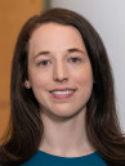Local therapy for isolated central nervous system progression among patients receiving antibody-drug conjugate therapy Research Letter
| Authors: | Lebow, E. S.; Eichholz, J.; Zhang, Z.; Toumbacaris, N.; Imber, B.; Chen, L.; LaPlant, Q.; Yamada, J.; Pike, L. R. G.; Modi, S.; Seidman, A. D.; Beal, K.; Moss, N. S.; Yu, Y. |
| Title: | Local therapy for isolated central nervous system progression among patients receiving antibody-drug conjugate therapy |
| Abstract: | Purpose: Antibody drug conjugates (ADCs) are an increasingly important class of therapeutics among patients with breast, lung, urothelial, and other malignancies. Guidelines recommend local therapy and continuation of current systemic therapy among patients with isolated brain relapse. We describe the clinical outcomes of this approach among patients receiving ADCs. Methods and Materials: We queried our institutional database for patients receiving radiation therapy (RT) in the setting of isolated brain progression on ADCs with a plan to continue same-line therapy after radiation. Patients with ≤3 brain metastases at the time of recurrence were categorized as oligoprogressive. Study endpoints included overall survival, progression-free survival (PFS), and the cumulative incidence of next therapy from the start of local therapy. Results: We identified 17 patients receiving ADC therapy with isolated brain progression treated with radiation (stereotactic radiosurgery [SRS]: n = 13, whole brain radiation: n = 4). All patients received concurrent ADC and RT. The median follow-up from local therapy was 29.5 months (95% CI, 21.4-not reached). The median overall survival was 19 months (95% CI, 16-not reached), and the median PFS was 8.1 months (range, 6.7-19 months). One lesion treated with SRS had local failure 21 months after treatment, and the 24-month cumulative incidence of local failure across the entire cohort was 1.6% (95% CI, 0.13%-7.7%). The 6-month cumulative incidence of radiation necrosis was 12% (95% CI, 1.8%-32%). The cumulative incidence of next therapy at 6 and 12 months was 47% (95% CI, 22%-69%) and 71% (95% CI, 41%-87%), respectively, and was significantly lower among patients with oligoprogressive brain recurrence. After SRS, 2 patients were without evidence of disease, discontinued systemic therapy, and were stable on observation at last follow-up. Conclusions: To the best of our knowledge, this is the first clinical report of outcomes using the guideline-recommended approach of local therapy for isolated brain relapse among patients receiving ADCs. Local therapy may delay the need for next line systemic therapy, particularly among patients with oligoprogressive brain relapse. © 2025 The Authors |
| Keywords: | adult; cancer survival; controlled study; aged; survival rate; overall survival; fatigue; cancer recurrence; systemic therapy; cancer radiotherapy; brain radiation; nuclear magnetic resonance imaging; follow up; cancer immunotherapy; progression free survival; local therapy; cohort analysis; medical record review; retrospective study; central nervous system; brain metastasis; headache; stereotactic radiosurgery; salivary gland cancer; metastatic breast cancer; alopecia; brain hemorrhage; radiation necrosis; non small cell lung cancer; cumulative incidence; radiation toxicity; whole brain radiotherapy; gait disorder; clinical outcome; trastuzumab emtansine; Common Terminology Criteria for Adverse Events; asymptomatic disease; human epidermal growth factor receptor 2 positive breast cancer; human; female; article; median survival time; estrogen receptor negative breast cancer; monoclonal antibody therapy; progesterone receptor negative breast cancer; breast radiotherapy; sacituzumab govitecan; trastuzumab deruxtecan; encephale isole |
| Journal Title: | Advances in Radiation Oncology |
| Volume: | 10 |
| Issue: | 3 |
| ISSN: | 2452-1094 |
| Publisher: | Elsevier Inc. |
| Date Published: | 2025-03-01 |
| Start Page: | 101714 |
| Language: | English |
| DOI: | 10.1016/j.adro.2025.101714 |
| PROVIDER: | scopus |
| PMCID: | PMC11910671 |
| PUBMED: | 40092156 |
| DOI/URL: | |
| Notes: | Article -- MSK Cancer Center Support Grant (P30 CA008748) acknowledged in PDF -- MSK corresponding author is Yao Yu -- Source: Scopus |
Altmetric
Citation Impact
BMJ Impact Analytics
MSK Authors
Related MSK Work
















